- Учителю
- Использование на уроках английского языка материала по теме «Кинематограф Алтая»
Использование на уроках английского языка материала по теме «Кинематограф Алтая»
Использование на уроках английского языка материала по теме «Кинематограф Алтая»
V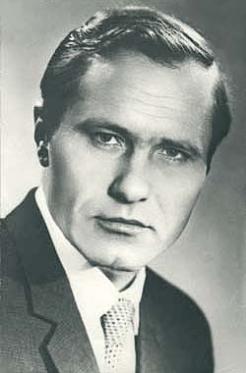 asily
Shukshin
asily
Shukshin
Vasily Shukshin (July 25, 1929 - October 2, 1974) was a Soviet/Russian actor, writer, screenwriter and movie director.
Vasily Shukshin was born on July 25, 1929 to a peasant family in the village of Srostki in Siberian Krai, now Altai Krai. In 1933, his father, Makar Leontjevich Shukshin, was arrested and shot during repressions associated with mandated collectivization. His mother, Maria Sergeyevna had to look after the survival of the entire family. By 1943 Shukshin had finished 7 years of village school and entered an automobile technical school in Biysk.
In 1949, Shukshin was drafted into the Navy. In 1953 he returned to his native village. Having passed an external exam for high school graduation, he became a teacher of Russian, and later a school principal in Srostki.
In 1954 Shukshin entered the directors department of the All-Russian State Institute of Cinematography, studied under Mikhail Romm and Sergei Gerasimov, and graduated in 1960. While studying at the All-Russian Institute of Cinematography in 1958, Shukshin had his first leading role in Marlen Khutsiev's film "The Two Fyodors". Then he became a staff director at the Gorky Film Studio in Moscow. He wrote and directed film «There is this Lad». The film premiered in 1965, winning top honors at the All-Union Film Festival in Leningrad and the Golden Lion at the XVI International Film festival in Venice. Other films soon followed, such as "Your Son and Brother", "Strange People" (1969) and "Bench by the Stove".
Perhaps Shukshin's most famous work is "The Red Snowball Tree" which he published as a novel in 1973 and turned into a film (in which he himself starred) in 1974. The story of a former prisoner who decides to break with the criminal world and live a peaceful country life holds a firm place in the gold Russian cinematography.
Vasily Shukshin died on October 2, 1974 during the filming of "They Fought for Their Motherland" Union film festival.
On Piket Mount in Skostki the annual traditional Shukshin's birthday celebrations are held. The first meeting was held on July 25, 1976. Since then Shukshin meetings would be held annually. Since 1986 Shukshin meetings have been held within the framework of the program "Shukshin days in Altai ", which was opened in Barnaul, then went on in Biysk ("small Shukshin meetings") and finished with a literary holiday in Srostky, the native land of the writer. Shukshin meetings became a good tradition, an appreciable event in cultural life of Altai.
Films
"There Is Such a Lad" is a Soviet Comedy film, directed by Vasily Shukshin. The movie is based on Vasily Shukshin's collection of short stories.
The movie tells the story of an Altai truck driver Pashka Kolokolnikov (played by Leonid Kuravlyov) - a kind, funny, and outgoing person, who loves life. He is a simpleton with a variety of gross provincial expressions and remarks, who likes to make fun of people and play practical jokes. But it turns out that he can also be a hero, when he prevents the explosion of a gasoline truck by risking his life.
"Your Son and Brother" is a Soviet drama film, directed by Vasily Shukshin. The movie is based on Vasily Shukshin's short stories as well.
There is an old man named Yermolai Voyevodin living in a Siberian village. He has four sons and a daughter. They all have different lives. The oldest one - Ignat - moves to Moscow and begins to perform at a circus. He is happy with his life and manages to seduce his brother Maxim into coming to the capital. Maxim finds a job as a laborer at a construction site, but constantly feels loneliness. He longs for his village, but he is too proud to come back home. Another son - Stepan - gets into a "righteous" fight and goes to prison. Three months before his official release, Stepan escapes from prison and returns to his village to see his relatives and his homeland and to find strength to serve his sentence, as he calls it. The old man is left with his favorite son Vasily and a mute daughter Verka. Yermolai is very emotional over the breakup of his family and dreams of getting all of his sons together under his roof, but will his dream ever come true?
The Red Snowball Tree
Coming out of the penal colony, a thief-recidivist, Yegor Prokudin (Shukshin), nick-named Grief decides to go to the village where the blue-eyed stranger, Lyuba (Fedoseyeva-Shukshina), with whom he corresponded by letters, lives. He needs to wait out and to look around. Lyuba appears to love him genuinely, despite his dark past and the strong misgivings of her own parents. Eventually life in the village destroys all of Yegor's plans, and he decides to break with the past forever. The villagers seem to get over their initial distrust to the former convict, and accept him as one of their own. Now he has friends, work and beloved woman. However, the criminals - former friends of Yegor - are not going to put up with his new way of life. One day three of them arrive in a car and try to persuade him to return to the old ways. When this fails, they stab him to death with a knife and leave. Pyotr, Lyuba's brother, gives them a chase and kills them, crushing their car with his dump-truck.
Valeri Zolotukhin
V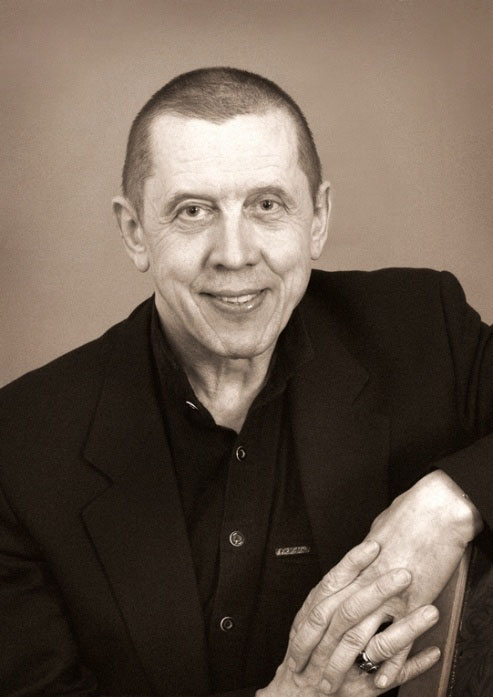 aleri
Zolotukhin was born in the village of Bystry Istok in Altai Krai.
His father, Sergey Illarionovich Zolotukhin-a chairman of a local
collective farm-and his mother, Matryona Fedoseevna Zolotukhina
were peasants. It was his childhood dream to become an actor and in
1958 he was admitted to the Department of Musical Comedy at the
Moscow Theatre Institute (GITIS). When he graduated in 1963, he was
offered a job at the Mossovet State Theatre, where he worked for a
year.
aleri
Zolotukhin was born in the village of Bystry Istok in Altai Krai.
His father, Sergey Illarionovich Zolotukhin-a chairman of a local
collective farm-and his mother, Matryona Fedoseevna Zolotukhina
were peasants. It was his childhood dream to become an actor and in
1958 he was admitted to the Department of Musical Comedy at the
Moscow Theatre Institute (GITIS). When he graduated in 1963, he was
offered a job at the Mossovet State Theatre, where he worked for a
year.
From 1964 Zolotukhin was an actor at the Taganka Theatre and on July 18, 2011 was appointed director of the Taganka Company. At the same time he was also an acting artistic director.
His first movie offer V. Zolotukhin received from a director V. Nazarov. The young actor made his film debut in 1965 in the historical and adventure movie "Package", based on a short novel of the same name, written by L. Panteleev. His role of Trofimov brought him fame, but the real actor's popularity came later.
He shot to fame after starring as a local police officer in a detective story "The Master of Taiga" (1968), directed by the same V. Nazarov. The movie was a great success.
A film, which brought the actor nation-wide love and critical acclaim, came out three years later. It was an eccentric musical comedy "Bumbarash". After an unbelievable success of "Bumbarash", Valeri Zolotukhin became one of the most in-demand actors of the national cinematography. It was then in the 1970s, when V. Zolotukhin's creative work as an actor was distinguished by a big amount of recognizable bright characters created by him. In 10 years he featured in 18 films. In 1980s theatre was playing a bigger part in V. Zolotukhin's life than cinematography.
In 2000s V. Zolotukhin started actively participating in movies and shows again. The mark in the beginning of a new period in his work was a TV show "Homestead" (2003), where Valeri Sergeyevich played an old man nicknamed Khali-Gali. After that V.S. Zolotukhin demonstrated his acting skills while featured in the movies directed by T. Bekmambetov "The Night Watch" (2004) and "The Day Watch" (2006), where he played an old vampire.
Bumbarash.
A private Bumbarash, who is considered killed in action during World War I, unexpectedly returns to his home village, where he is not recognized by anybody, because the money for his funeral is long time spent for its intended purpose. There is a full-blast civil war in the country. The authority changes twice a day: the Reds, the Whites, anarchists, bandits, the Reds again, the Whites again, and thus endlessly… Among all this chaos, Bumbarash is trying to build his life and personal happiness.
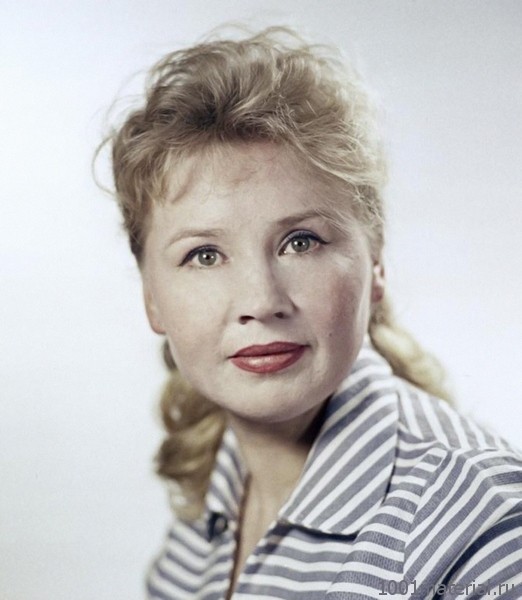 Ekaterina
Fyedorovna Savinova is a Soviet actress who possessed a very unique
voice. She was born on Dec. 26th of 1926 in the village of Eltsovka
located in Altai Krai.
Ekaterina
Fyedorovna Savinova is a Soviet actress who possessed a very unique
voice. She was born on Dec. 26th of 1926 in the village of Eltsovka
located in Altai Krai.
Her first attempt to enter the All-Russian State Institute of Cinematography right after graduating from high school failed. Ultimately she was able to enter that Institute and graduated from it in 1950.
While studying there Ekaterina met her future husband Evgeny Tashkov. They got married 8 months after they graduated and in 1957 they had a son Andrei.
Before filming her most famous movie "Come back tomorrow" Ekaterina got infected with brucellosis (she drank some fresh milk). Because of the untimely treatment the disease caused some complications on her brain, which led to schizophrenia. She wasn't able to recover completely.
In 1970 she went to live with her sister in Novosibirsk. On Apr. 25th of 1970, knowing about her untreatable disease, Ekaterina threw herself under a train at the Novosibirsk train station just like a heroine of "Anna Karenina".
Her most famous movies are "Come back tomorrow", "Kuban Cossacks", "Big Family", "Honeymoon", "Balzaminov's wedding", "Payback", etc.
Come back tomorrow.
A girl, Frosya Burlakova, comes to Moscow from a remote village to enter the Gnessin Academy of Music to become a singer.
Frosya is trying to enter the Academy, but finds out that she is too late. The exams are over. While Frosya spends several days at the Academy, she constantly runs into a famous and a respectable professor Sokolov, who finally agrees to audition her. During the audition, the professor discovers that a poorly educated girl from Siberia possesses brilliant and extraordinary singing skills, has remarkably strong voice and also possesses natural intelligence and sense of beauty. Thanks to the efforts of the professor, Frosya finally enters the Academy.
A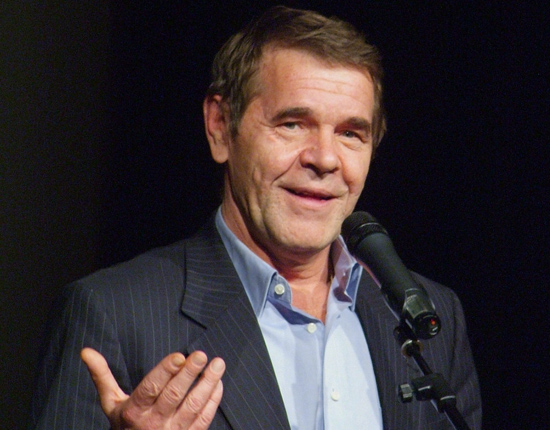 leksey
Ivanovich Buldakov is a Soviet and Russian actor of stage and
screen. He is also People's artist of Russia. He was born on March
26th of 1951 in the village of Makarovka located in Altai Krai
Klyuchevski region. Then his family moved to Pavlodar. Aleksey
participated in boxing and Greco-Roman wrestling. He graduated from
a drama class at the Pavlodar drama theatre named after A.P.
Chekhov (1969). Aleksey worked at the Pavlodar tractor factory.
leksey
Ivanovich Buldakov is a Soviet and Russian actor of stage and
screen. He is also People's artist of Russia. He was born on March
26th of 1951 in the village of Makarovka located in Altai Krai
Klyuchevski region. Then his family moved to Pavlodar. Aleksey
participated in boxing and Greco-Roman wrestling. He graduated from
a drama class at the Pavlodar drama theatre named after A.P.
Chekhov (1969). Aleksey worked at the Pavlodar tractor factory.
Up until 1981 he worked in the theatres of Pavlodar, Tomsk, Karaganda and Ryazan. From 1985 to 1993 Aleksey worked in the movie studio "Belarusfilm". He was primarily a supporting actor until 1995. A role of general Ivolgin in "Peculiarities of the national hunt" made him a true national star
At the end of the 90s, together with Vlad Zabelin, he produced an album "Piculiarities of the national chanson".
In 2001 as a singer Aleksey, together with the band of Evgeniy Bednenko "Chorus", produced a solo album which included 14 songs written specifically for Aleksey by a lyricist Anatoly Poperechniy and a composer Evgeniy Bednenko. In February of 2011 he produced a new album "Old tango."
Some of Aleksey's best movies include "Peculiarities of the national hunt", "Shirli-Myrli", "Hello, fools", "Moonzund", "All costs paid", "The guard", "Mother", "Operation Happy New year", "Peculiarities of the national fishing", "Burnt by the sun 2".
A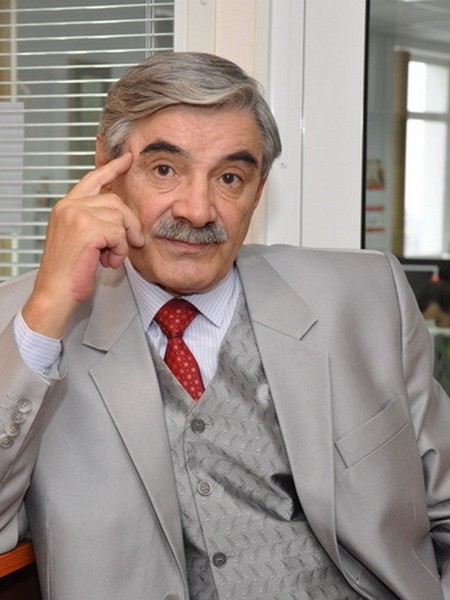 leksandr
Vasilyevich Pankratov-Cherny (real last name Pankratov) was born on
June 28th of 1949 in the village of Konyevo located in Altai Krai.
He is a Russian actor and director. He is also People's artist of
Russia.
leksandr
Vasilyevich Pankratov-Cherny (real last name Pankratov) was born on
June 28th of 1949 in the village of Konyevo located in Altai Krai.
He is a Russian actor and director. He is also People's artist of
Russia.
He came from a family of Cossacks deported in1920s. Aleksandr's mother's name is Agrippina Yakovlevna Pankratova. His father's name is Vasilyi Trofimovich Guzev.
A.V. Pankratov graduated from the Gorky acting school in 1968. He worked as an actor in the Penza drama theater from 1968 till 1971. In 1976 Aleksandr graduated from a department of general film director in the All-Russian State Institute of Cinematography.
He was featured in many movies of 1980s and 1990s. He was a participant of many broadcasts such as "White Parrot" and "Wheel of History".
Aleksandr is also known as a poet. He started writing his first poems in 1960s, but he didn't start doing it again until 1990s. Aleksandr's first book of poems was published in 1996.
Among some of Aleksandr's movies are "Shirli-Myrli", "Ward N 6", "Master and Margarita", "Ultimatum", "Gigolo", "Battle for Moscow", "Hurt me", "Heart-rending romance", "Russian brothers", "Waiter with a golden tray", "Secret date", "Hot spot", "Red sky. Black snow".
We are from jazz is a Soviet Comedy film, directed by Karen Shakhnazarov. A student is expelled from music school because he loves jazz and jazz at that time (film represents 1920s) is a kind of music that represents USA capitalism. He hires two street musicians to form a band, and goes from one city to another trying to gain fame.